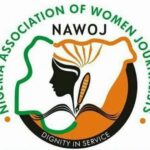By Ndidi Anyanwu
The alarming rise in child kidnappings, illegal adoptions, and the proliferation of ‘baby factories’ in Nigeria underscores a deep crisis within the country’s child protection system. While child trafficking is a global phenomenon, Nigeria has become a significant hub, where systemic failures in governance, weak enforcement of adoption laws, and socio-economic pressures have created a thriving underground market for babies. Since the discovery of the first baby factory in 2006, scholars, policymakers, and child rights advocates have raised concerns over the commodification of children. Infants are increasingly treated as transactional goods, fuelling an illicit trade driven by demand and supply dynamics. What initially involved illicit adoption syndicates exploiting legal loopholes has now escalated to more direct forms of child theft, with reports of newborns being abducted from hospitals or forcibly taken from vulnerable parents. The market for adoptable babies has expanded into a lucrative service industry, where “profit agencies” cater to desperate prospective parents willing to bypass legal hurdles.
Reports of coerced pregnancies, illegal orphanages, and infants being sold for financial gain reveal critical structural weaknesses in Nigeria’s legal and institutional frameworks. These trends highlight deficiencies in governance, ineffective law enforcement, and inconsistencies in adoption policies across states. The Lagos State Commissioner for Youth and Social Development recently acknowledged that lengthy adoption procedures inadvertently drive prospective parents towards illegal channels. In 2023 alone, the ministry rescued 172 babies and received 1,115 adoption applications—figures underscore the increasing demand for adoption and the pressing need to streamline the legal process.
Adoption, in principle, is designed to provide care and protection for orphaned and vulnerable children. However, in Nigeria, the process is encumbered by excessive bureaucracy, inconsistent regulations, prohibitive costs, and inefficiencies that deter many well-intentioned adoptive parents. Consequently, desperate families often turn to illicit means, unintentionally sustaining a black market for child acquisition. This edition of the Nextier SPD policy weekly examines the relationship between bureaucratic adoption bottlenecks and the rise of child trafficking in Nigeria. It explores governance failures that have enabled illicit adoption networks to thrive and provides policy recommendations to strengthen Nigeria’s adoption system while safeguarding children’s rights.
Understanding the Adoption System in Nigeria: Challenges and Gaps
Nigeria’s adoption system operates within a dual framework of federal and state laws, with the Child Rights Act (CRA) of 2003serving as the primary legal foundation. The CRA aligns with international child protection instruments, including the United Nations Convention on the Rights of the Child (UNCRC) and the African Charter on the Rights and Welfare of the Child, ensuring that adoption processes prioritise the child’s best interests. Section 1 of the Act explicitly establishes the child’s welfare as the guiding principle in all adoption proceedings. The CRA provides clear legal safeguards to regulate adoption, prevent child exploitation, and uphold children’s rights. It specifies that only children who have been abandoned, orphaned, or voluntarily relinquished by their biological parents or guardians are eligible for adoption (Section 128). Additionally, prospective adoptive parents must meet stringent requirements, including being at least 25 years old, at least 21 years older than the child, passing background checks, and demonstrating financial and emotional stability (Section 131). The adoption process follows a structured legal procedure involving an application to the State Family Court, extensive assessments by social welfare officers, and a mandatory bonding period before final approval (Sections 132–139). To prevent exploitation, the Act explicitly prohibits monetary transactions or any form of child trafficking in adoption processes (Section 143) and imposes strict penalties for violations. It also mandates confidentiality of adoption records and post-adoption monitoring to ensure the child’s well-being.
Unlike Nigeria, Ghana and Kenya operate adoption systems primarily guided by a centralised legal framework under their respective Children’s Acts. These systems consolidate adoption regulations under a single national authority, streamlining procedures and potentially reducing bureaucratic delays. In Ghana, for example, the Department of Social Welfare oversees adoption, ensuring uniform policy implementation across all regions. Similarly, Kenya’s National Adoption Committee plays a pivotal role in screening and approving adoptive parents, ensuring that processes adhere to both domestic and international child protection standards. In contrast, Nigeria’s dual system—where federal and state laws govern adoption—creates a fragmented regulatory landscape, leading to inconsistencies in adoption processes across different states.
Although all 36 states in Nigeria have domesticated the Child Rights Act, its implementation varies significantly due to state-specific policies, weak enforcement mechanisms, and bureaucratic inefficiencies. The lack of a standardised national adoption policy has resulted in disparate legal requirements, making adoption more accessible in some states while excessively restrictive in others. For instance, most Nigerian states mandate Nigerian citizenship for prospective adoptive parents and impose a mandatory residency period before finalisation. However, Lagos State, which has a more flexible approach, does not require a three-month residency period and allows non-Nigerian applicants to adopt. These inconsistencies not only create delays but also incentivise illegal adoption practices, as prospective parents seeking quicker processes may turn to unsanctioned intermediaries.
The lengthy and costly adoption process in Nigeria serves as a major deterrent for many prospective parents, discouraging them from pursuing legal adoption. The process, which varies depending on the state and agencies involved, can take six months to two years or even years to complete. Additionally, the financial burden associated with adoption is another significant challenge. While adoption is legally free, the process often comes with high legal and administrative costs. Prospective adoptive parents are required to pay for court processing fees, home studies, medical assessments, and other administrative charges, which can be prohibitively expensive. In states where bureaucratic inefficiencies are particularly severe, the costs tend to be even higher, as prospective parents may be pressured to pay unofficial fees or bribes to expedite the process.
Corruption within Nigeria’s adoption system is pervasive. Across different levels of the adoption process, officials frequently demand or accept bribes to expedite applications, bypass regulatory checks, or manipulate records to facilitate legal and illegal adoptions. These corrupt practices extend beyond individual government personnel to an entrenched network of traffickers, unscrupulous adoption agencies, and rogue orphanage operators who exploit gaps in the system for financial gain. Many prospective adoptive parents, frustrated by the bureaucratic bottlenecks and long waiting periods, are often left with little choice but to comply with unofficial demands to speed up the process, further entrenching corruption in the system.
A major enabler of this corruption is the weak regulatory oversight of orphanages, maternity homes, and adoption agencies. Many of these institutions operate with minimal scrutiny, making it easier for illicit adoption schemes and child trafficking to thrive under the pretence of legal adoption processes. Cases have emerged where orphanages collude with traffickers to present stolen or fraudulently obtained children as legally available for adoption. Some maternity homes have been found to coerce vulnerable pregnant women—especially teenage girls and those from low-income backgrounds—into giving up their babies, who are then sold to desperate couples under the guise of adoption. Despite legal requirements for accreditation and routine inspections, enforcement mechanisms are grossly inadequate, allowing many institutions to function outside the law with little fear of repercussions.
In addition to systemic corruption, the failure of law enforcement agencies to effectively investigate and prosecute traffickers and corrupt officials emboldens criminal networks engaged in illicit adoption practices. Many cases involving illegal adoptions, baby factories, and child trafficking either go unreported or remain unresolved due to weak evidence gathering, legal loopholes, or deliberate interference by influential individuals. Even when traffickers or complicit officials are apprehended, the prosecution process is often slow, and conviction rates remain alarmingly low. This lack of accountability creates a permissive environment where offenders feel protected, knowing that the likelihood of facing serious consequences is minimal.
A further challenge is the fragmented coordination among key institutions responsible for regulating adoption and combating child trafficking. Agencies such as the police, the National Agency for the Prohibition of Trafficking in Persons (NAPTIP), social welfare departments, and the judiciary often work in silos, leading to inefficiencies in addressing adoption-related crimes. Jurisdictional disputes, lack of information sharing, inadequate funding, and bureaucratic red tape hinder effective case management and law enforcement efforts. Without a unified and well-coordinated approach, efforts to combat illegal adoptions and child trafficking remain largely ineffective.
Impact of a Restrictive Adoption System
The inefficiencies and bureaucratic bottlenecks within Nigeria’s adoption system have had far-reaching and unintended consequences, creating a breeding ground for illegal child trafficking. The alarming frequency of child trafficking cases across Nigeria underscores the direct consequences of these adoption system failures. For instance, on December 2, 2024, the Plateau State police apprehended the syndicate led by a pastor, rescuing five children aged 2-4 who had been abducted from their homes in Jos. The pastor confessed to having abducted and sold 13 children. In Ogun State, authorities, on December 29, 2024, arrested a suspect who admitted to buying and selling three children, with transaction prices ranging from ₦250,000 to ₦3,000,000. Further South, three women were paraded for stealing a one-year-old baby boy from his mother in Port Harcourt, Rivers State. Similarly, in Owerri, Imo State, authorities apprehended a woman in Owerri, Imo State and rescued three children from her custody. On September 28, 2024, in Nasarawa State, the Keffi Police Division arrested a woman who had stolen a seven-day-old baby girl during a naming ceremony. In Lagos State, a baby allegedly sold by a maid for ₦800,000 was found in a local market. These incidents illustrate a disturbing trend where infants and young children are treated as commodities within an expanding underground trafficking network. While human trafficking has long plagued Nigeria, the increasing demand for infants in the black market exposes critical vulnerabilities in the country’s legal system, leaving its most defenceless members at risk.
In addition to direct child trafficking, Nigeria’s restrictive and inefficient adoption system has contributed to the proliferation of baby factories—covert facilities where young girls and vulnerable women, often in distress or financial hardship, are lured, coerced, or abducted. Many of these women are promised financial incentives or shelter, only to find themselves trapped, with no control over their pregnancies or the fate of their newborns. Babies born in these facilities are then sold for various illicit purposes, including illegal adoptions and ritual killings. In the absence of a functional and transparent adoption system, the children born in these homes fall through the cracks, becoming invisible to authorities. The continued expansion of human trafficking networks not only endangers children but also erodes public confidence in Nigeria’s institutions, further entrenching the cycle of corruption and impunity.
Recommendations
1. Reform the Adoption Process: Reforming the adoption process to make it more accessible is essential in discouraging prospective parents from turning to illegal alternatives. The legal adoption framework in Nigeria should be simplified to eliminate excessive bureaucratic delays and unnecessary costs while maintaining strict safeguards for child welfare. Streamlining procedures will ensure that adoptive parents can navigate the system efficiently without being hindered by prolonged administrative bottlenecks. Establishing a time-bound adoption framework with clear timelines for processing applications will help create a more predictable and structured process. Additionally, financial barriers should be addressed by ensuring that adoption services are affordable and transparent, reducing opportunities for corruption and exploitation. By making adoption more accessible, the government can promote legal pathways for child placement while upholding the best interests of children in need of a safe and loving home.
2. Enhance Oversight and Regulation of Adoption Agencies: Regulating and monitoring orphanages and adoption agencies is crucial to preventing child trafficking and exploitation. The government must implement strict licensing and monitoring procedures to ensure that only credible, government-approved agencies handle adoptions. This requires a comprehensive framework that includes rigorous background checks, clear operational guidelines, and mandatory compliance with child protection laws. Regular inspections and audits should be conducted to detect and prevent cases of child abuse, neglect, or unauthorised adoptions, ensuring that orphanages and adoption agencies operate within the law. Additionally, staff members in these institutions must undergo mandatory training on child rights, trauma-informed care, and ethical adoption practices. Proper training will equip them with the knowledge and skills necessary to prioritise the best interests of children, safeguard their well-being, and uphold ethical adoption procedures. Strengthening oversight mechanisms and ensuring accountability will help create a more transparent and child-centred adoption system that minimises the risks of exploitation and trafficking.
3. Strengthening Law Enforcement and Child Protection Mechanisms: Law enforcement agencies must be better resourced and trained to detect, investigate, and dismantle child trafficking syndicates and illegal adoption networks. Specialised anti-trafficking units within the Nigeria Police Force should be expanded. Interagency collaboration should be enhanced, and information-sharing mechanisms must be strengthened to enable real-time tracking of adoption applications and suspected trafficking cases.
4. Improve Public Awareness and Community Engagement: Many prospective adoptive parents resort to illegal adoption due to misinformation, a lack of understanding of legal procedures, or frustration with bureaucratic delays. Strengthening public education campaigns will help sensitise citizens about the risks ofillegal adoption. Coordinated awareness campaigns should also be intensified to educate women on their rights, legal adoption options, and available support systems. Strengthening the social welfare system to provide long-term assistance to single mothers and at-risk women is essential in reducing the number of babies trafficked.
5. Holding Perpetrators Accountable with Stiffer Penalties: Stronger punitive measures must be enforced against individuals and institutions involved in illegal adoption and child trafficking. Existing laws should be reviewed to impose harsher sentences on traffickers, corrupt adoption officials, and operators of baby factories. The judiciary should prioritise cases of child trafficking, ensuring swift trials and convictions to deter future offenders.
Policy Recommendations
1. There is a need to reform the adoption process to make it more accessible, eliminating excessive bureaucratic delays and unnecessary costs.
2. The government must implement strict licensing and monitoring procedures to ensure that only credible, government-approved agencies handle adoptions.
3. It is important to strengthen law enforcement and child protection mechanisms.
4. There is a need to improve public awareness and community engagement.
5. Stronger punitive measures must be enforced against individuals and institutions involved in illegal adoption and child trafficking.
Conclusion
Nigeria’s adoption system, while intended to safeguard children’s welfare, has inadvertently contributed to the rise of child trafficking. The bureaucratic hurdles and prolonged processes for adoption have created opportunities for illicit networks to exploit vulnerable children. Weak enforcement mechanisms, socio-economic pressures, and gaps in child protection frameworks further exacerbate this situation.Addressing this issue requires critically examining the existing adoption laws and child protection systems to ensure that they effectively balance regulation with accessibility. A more efficient and transparent process would help reduce the demand for illegal alternatives while ensuring that children in need find safe and nurturing homes. Without meaningful reforms, the risks posed by child trafficking will persist, undermining Nigeria’s broader efforts to protect children’s rights.
(Ndidi Anyanwu is a Policy and Research Consultant at Nextier)



